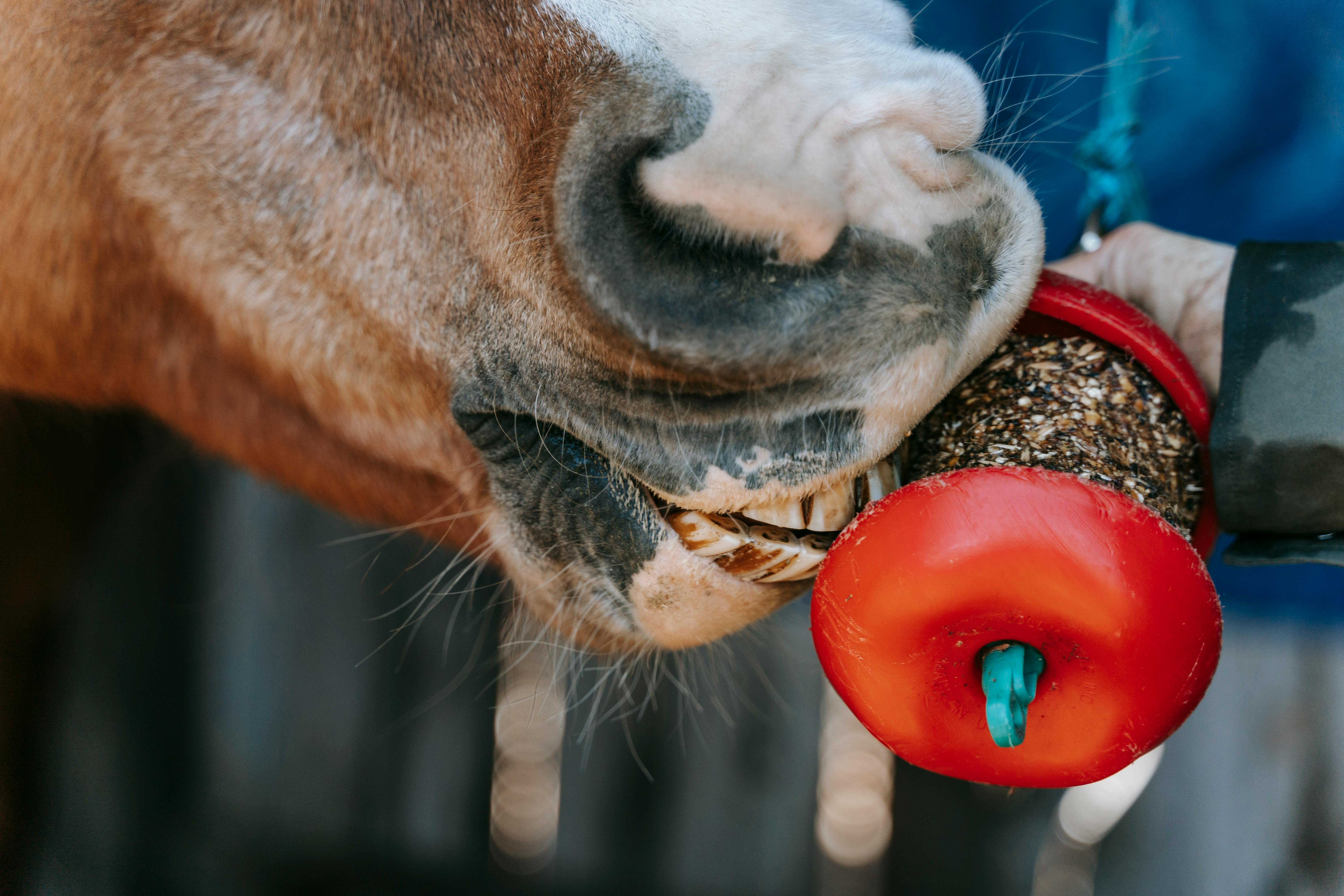Horse Teeth: What You Need to Know
17th Feb 2025
Ever heard that your horse's teeth are like a health diary? They can let you know how your equine buddy is really doing! Healthy teeth are the unsung heroes of your horse's comfort, from helping them graze to grinding down on a tough feed. They’re key to keeping your equine friend happy and thriving!
However, dental problems can creep up on you, bringing along pain, finicky eating habits, and even a bit of a mood swing for your horsey friend. Let’s gallop into the world of horse teeth and see how many they have, what types they come in, and how to keep them in top shape.
How Many Teeth Do Horses Have?
So, how many teeth does a horse have? Well, it depends on their age and gender. Adult horses usually have 36 to 44 teeth, while foals start with fewer—these are called “deciduous” (baby) teeth. The number varies in adults because some horses have canines or wolf teeth, which are more common in males.
Deciduous (Baby) Teeth
Foals are born without teeth, but things change quickly and they get to chomp down on grass in no time. By the time they’re around 8 months old, they’ll have about 24 milk teeth. These are temporary and start falling out at around 2 years old. By 5 years old, most horses will have their full set of permanent teeth.
Permanent (Adult) Teeth
Once your horse hits 5 years, they’ll likely have their full set of adult teeth. Here’s a breakdown of what’s in that equine mouth:
- Incisors: Located at the front of the mouth, used for cutting grass.
- Premolars and Molars: Found at the back, used for grinding food.
- Canines: Typically found in males, used for defense in the wild.
- Wolf Teeth: Small, vestigial teeth found in front of the premolars, often removed due to interference with the bit.

How Do Horses Use Their Teeth?
Horses have a knack for using their teeth in all sorts of important ways, like munching on grass and chomping down their food. Their sharp front teeth are perfect for snipping grass right at the roots, while their back teeth work hard to mash up the feed into tiny bits, helping with digestion. Having healthy teeth is important for your horse. It helps them chew efficiently and absorb nutrients properly, which in turn keeps them feeling great and thriving.
Types of Horse Teeth
Horses have four main types of teeth:
- Incisors: For cutting and grasping food.
- Canines: Usually found in males, not used for chewing.
- Premolars: Transitional teeth between incisors and molars.
- Molars: Used for grinding tough feed.
Common Dental Problems
Some common dental issues in horses include:
- Sharp Edges: Uneven wear can create sharp points that irritate the cheeks and tongue.
- Hooks and Ramps: Misaligned teeth can cause difficulty chewing.
- Wolf Teeth: These can interfere with the bit and may need removal.
- Tooth Loss: Older horses may lose teeth, making it harder to chew properly.
Expert Care Tips For Your Horse’s Teeth
Good dental care is key to preventing problems. Here’s how to care for your horse’s teeth:
- Schedule regular dental checkups with an equine veterinarian.
- Watch for signs of dental issues, such as dropping feed or difficulty chewing.
- Provide appropriate feed to reduce the risk of excessive wear.
- Use quality horse vet supplies to ensure your horse’s overall health.
Give The Best Care For Your Horse’s Teeth
Healthy teeth mean a happy horse! By staying on top of their dental care, you’ll ensure they’re eating, grazing, and feeling their best. For all your equine care needs, check out our range of horse vet supplies at Scone Equine Group. We’re here to help you give your horse the very best.

